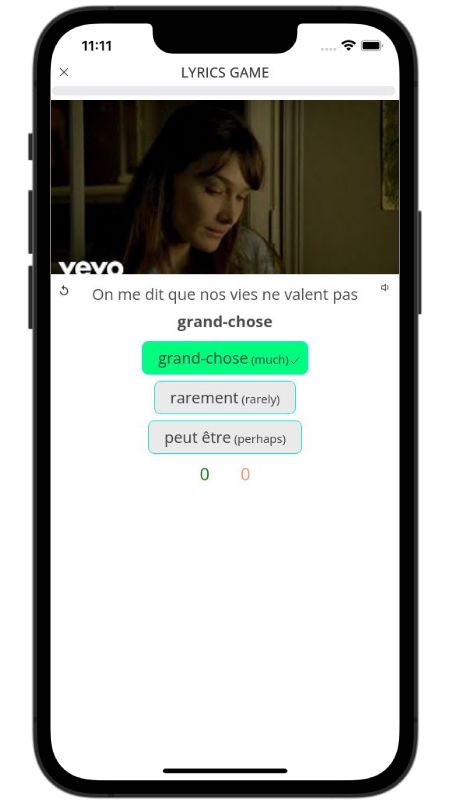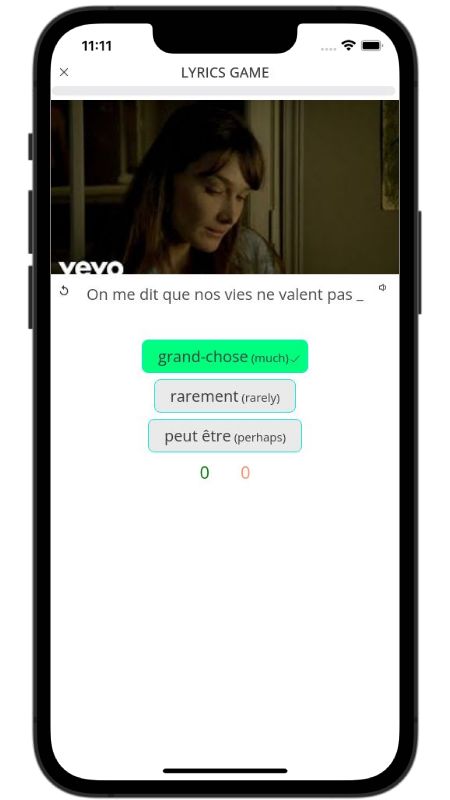Les Roses Du Bois Boulogne Lyrics in English Slimane
Below, I translated the lyrics of the song Les Roses Du Bois Boulogne by Slimane from French to English.
Every time I tell myself
That I'm the most beautiful
And it helps me a bit
I put red on my lips
And shadow on my eyes
I close the door
I say goodbye
To everything I've got
In case it's the end
You never know
And every night I wonder
If he'll come back
I wait for the one who'll
Get me out of here
I must admit, with the girls
We laugh at them
Truth is, they're like us
They're so lonely
In the whole garden
I'm the prettiest flower
It's that bandit, the one I love
Who told me so
You know, my rose
I want you only for me
So tomorrow to save you
I'll be there
They say the roses
In the Bois de Boulogne
Have thorns
But we, we love
We forgive
And stay dignified
They say the roses
In the Bois de Boulogne
Have thorns
If you stop
It's either you want me
Or you're hooking
One more time
But maybe
The last time
I say goodbye
For everything I've got
Even what I don't have
I made myself pretty
Yeah, the prettiest
So he'll talk to me
So he'll be strong
Yeah, the strongest
To love me
It's almost time
I hesitate a bit
When I see him coming down my road
He looks at me, he scares me
And asks me how much it costs
If I'd known, I'd have said
No, go see another
I'm done
He picked me and my bandit
Found me, left me lifeless
In the whole garden
I'm the prettiest flower
It's that bandit, the one I love
Who told me so
You know, my rose
I want you only for me
So tomorrow to save you
I'll be there
They say the roses
In the Bois de Boulogne
Have thorns
But we, we love
We forgive
And stay dignified
They say the roses
In the Bois de Boulogne
Have thorns
If you stop
It's either you want me
Or you're hooking
A rose doesn't die
I'll be back next spring
Bandit, don't wilt
Just a while longer and I'll be there
A rose doesn't die
Even if winter
Feels way too long
Bandit, don't wilt
Wait for spring
The first buds
In the whole garden
I'm the prettiest flower
It's that bandit, the one I love
Who told me so
You know, my rose
I want you only for me
So tomorrow to save you
I'll be there
They say the roses
In the Bois de Boulogne
Have thorns
But we, we love
We forgive
And stay dignified
They say the roses
In the Bois de Boulogne
Have thorns
If you stop
It's either you want me
Or you're hooking
Lyrics and Translations Licensed & Provided by LyricFind
Did you like this lyrics translation?
Did you know?
In addition to reading lyric translations, you can now learn French with music and lyrics from your favorite artists.
No more boring lessons. You can now learn with engaging and culturally relevant lyrics from the best artists.
Apple and App Store are trademarks of Apple Inc.
Google Play and the Google Play logo are trademarks of Google LLC.
iOS AppAndroid AppWeb LessonsFree PDF WorksheetsJoin ClassroomLyrics TranslationBlogAbout UsBuy as GiftLifetime











